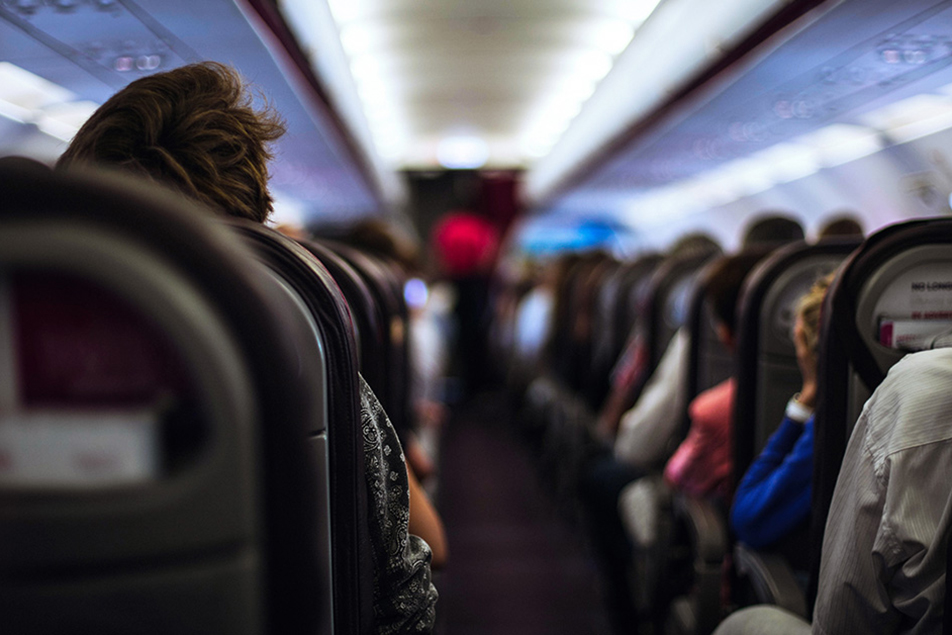
This season many of us will take to the skies for a quicker route to our vacation destinations. With thousands of people coming and going, it’s a common belief that air travel often leads to a bout with a cold or flu days later. We asked Scott Stienecker, MD, FACP, FSHEA, FIDSA, CIC, Medical Director Epidemiology and Infection Prevention, and Andrew Barchus, NP, PPG – Infectious Diseases, to explain how we can navigate the planes with prevention in mind.
Is there any truth to the belief people can get sick as a result of air travel?
Dr. Stienecker: There’s always a risk for increasing infection and there have been a variety of examples where that’s occurred, but is it a common and frequent thing? Probably not. In the past, airplanes used a lot of recirculated air, so it was a bigger problem than it is today.
That being said, it’s wise to look out for someone with obvious symptoms like coughing and a runny nose. You don’t want to touch their things if you can avoid it, particularly any hard surfaces they may have come into contact with.
Andy: There’s a reason why certain viral diseases peak in colder months, and one speculation is that people are in more confined spaces. That would be perhaps the greatest risk factor for communicable diseases like influenza and rhinovirus. It’s not the airplane per se, it’s the confined space.
Should we disinfect our seating area?
Dr. Stienecker: There’s a benefit to wiping down your seat, but the typical traveling public are healthy individuals.
Andy: Certainly wipe things down if possible, but there are certainly things you might touch but can’t wipe down, like handles on the bathroom, toilets, etc. That’s why washing your hands or using an alcohol-based hand sanitizer is so important. Avoid touching things and then touching your face without washing your hands. Good hand hygiene is incredibly beneficial.
If you feel sick and you’re coughing and sneezing, cough or sneeze into the fabric of your shirt around the elbow, which can help prevent dispersing particles into the air. If you’re sitting next to someone who’s coughing on you, ask them to cough into their arm or take a mask.
Can bulking up on vitamins before travel help?
Dr. Steinecker: Things like vitamin C have never been shown to reduce infections or treating infections. Zinc lozenges may potentially offer some help, but ultimately you’re going to inhale the organisms in the air.
Does air travel cause fatigue?
Dr. Steinecker: Getting up early and dragging kids through a busy airport causes fatigue. The bottom line is you are more susceptible to illness if you’re stressed, and if flights got delayed and you have to sleep in the airport, you’re experiencing a good deal of stress. Those are all difficult things.
Andy: Part of it may be how well you sleep and rest on a plane. You’re certainly at a higher risk when the body isn’t rested and is rundown. Consider taking your own pillow or something comforting and familiar. Some people take melatonin to regulate their sleep patterns when traveling.
Any other considerations for safe travel?
Dr. Steinecker: Travelers diarrhea, go to CDC.gov/travel for recommendations. Don’t veer from your normal diet too much make sure to get any necessary vaccinations at least 6 months in advance. Bring medications to treat stomach issues that might arise and don’t drink the water.